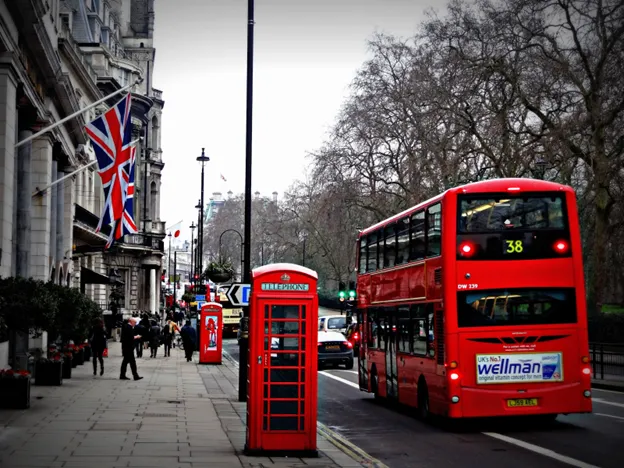Are UK Immigration Policy Changes Political Point-Scoring or Really What the Country Needs?
The British government has once again unveiled a raft of immigration policy changes, ostensibly aimed at reducing net migration and reinforcing control over the country’s borders. If this sounds familiar, it is because successive governments have pursued similar strategies, each time promising decisive action.
The latest measures, announced on 12 May 2025, follow the recent electoral success of the Reform Party, a political party that has capitalised on perceived public discontent over immigration. In response, the government has doubled down on its efforts to appear tough on migration. But will these restrictive measures have the desired effect?
Read more or contact an IAS lawyer to learn more about how the immigration policies affect you, your family or organisation. Get immediate assistance with your situation. Call us at +44 (0)333 414 9244 or contact us online.
Read our 1001 reviews
Political theatre or a practical solution?
The UK’s obsession with controlling borders and reducing net migration is not new. Since the build-up to the Brexit referendum, successive British governments sought to demonstrate their ability to manage immigration, often resorting to hostile rhetoric and punitive measures, which ultimately led to the UK leaving the EU – a decision with far-reaching consequences for the country and its citizens.
The latest policies, outlined in the immigration white paper, continue this trend. The government insists that the new policies are based on fairness and economic necessity. However, the Reform Party’s strong performance in local elections makes the timing seem far from coincidental. The white paper introduces, amongst other things:
- Higher salary thresholds for skilled workers
- Closure of overseas recruitment for social care visas
- Reduction of the post-study visa period for international graduates to a period of 18 months.
- Doubling the standard qualifying period for settlement to 10 years
- Restrictive measures targeting asylum seekers
These measures are framed as necessary to curb migration, yet they fail to appreciate or address the underlying economic and social factors that drive immigration in the first place. Migration patterns are influenced by factors beyond policy changes. Now, there’s a real risk that our obsession with reducing net migration could hurt our nation’s infrastructure.
Not what the country needs
Previous governments have attempted to create a hostile environment for immigrants. One of the key concerns culminating in the Brexit referendum was migration. Yet despite these efforts, net migration has remained high, and the UK continues to rely on foreign workers to fill essential roles in healthcare, education, and other sectors.
The new policies, which impose stricter requirements on skilled workers and international students, risk exacerbating labour shortages rather than solving them. By making it harder for migrants to enter and remain in the UK, the government is undermining industries that partly rely on foreign talent. This is particularly evident in the healthcare sector, where the closure of the social care visa route threatens to worsen staffing shortages, further eroding trust in these services.
Immigration is not what matters most to Brits
The economy and society are intertwined with migration, and no amount of political rhetoric can change that reality. But by scapegoating immigrants and introducing ill-informed restrictions, the government is pandering to anti-immigration sentiment by the far-right rather than addressing the real challenges facing the country.
When asked about the important issues facing the UK today, the issues most commonly reported by adults in Great Britain (in March 2025) were the cost of living (87%), the NHS (83%), and the economy (72%). Immigration only featured as one of the issues with older adults (aged over 50 years).
(source: ONS Public opinions and social trends, Great Britain: March 2025)
We are scapegoating asylum seekers
One of the most troubling aspects of the immigration policy reforms is the way asylum seekers are being scapegoated. Perceived public outrage over the costs associated with housing asylum seekers has been amplified by certain media outlets and political figures, leading to measures that further restrict their rights and access to support. The government’s response has been to introduce measures that make it harder for asylum seekers to remain in the UK, including stricter enforcement and reduced access to accommodation and benefits.
By making the asylum process more hostile, the government risks violating international agreements and further damaging the country’s reputation on the global stage. History has shown that punitive immigration policies do not deter asylum seekers; rather, they push them into precarious and often dangerous situations.
A stricter approach towards asylum seekers will fail to significantly reduce net migration because asylum seekers only make up a small proportion of the total arrivals in the UK.
In 2024, there were 132.3 million arrivals to the UK, but the majority (55%) were British nationals. Of the non-British arrivals, most were short-term visitors. Smaller numbers arrived for reasons other than visiting, such as work, study, family, and humanitarian protection (circa 1 million). People claiming asylum amounted to a mere 108,000 in 2024.
Rather than introducing further restrictive measures, the British Government should focus its efforts on tackling the UK’s asylum backlog, which stood at around 91,000 at the end of December 2024. That was 31% lower than the record levels reached in 2022, though still high by historical standards. Tackling the asylum backlog would allow unprocessed migrants already on British soil to either begin working (if successful) or be deported, not ‘pending’ as they await the outcome of their case.
(source: The Migration Observatory briefing, 28 April 2025)
It is time for a fair, humane, and effective immigration system
The UK is entering a new era with a hardline on humanitarian protection. The approach contravenes the UK’s legal and humanitarian obligation to provide refuge to those fleeing persecution and conflict. By perpetuating a cycle of hostility and introducing ineffective measures on the subject of immigration, we risk diverting attention from deeper systemic issues.
The government should focus on the issues that Brits are most concerned about, as well as creating a fair, humane, and effective immigration system that recognises the contributions of migrants, promotes integration and social cohesion, and complies with the country’s international obligations.
Table of Contents
Table of Contents will appear here.Legal Disclaimer
The information provided is for general informational purposes only and does not constitute legal advice. While we make every effort to ensure accuracy, the law may change, and the information may not reflect the most current legal developments. No warranty is given regarding the accuracy or completeness of the information, and we do not accept liability in such cases. We recommend consulting with a qualified lawyer at Immigration Advice Service before making any decisions based on the content provided.













